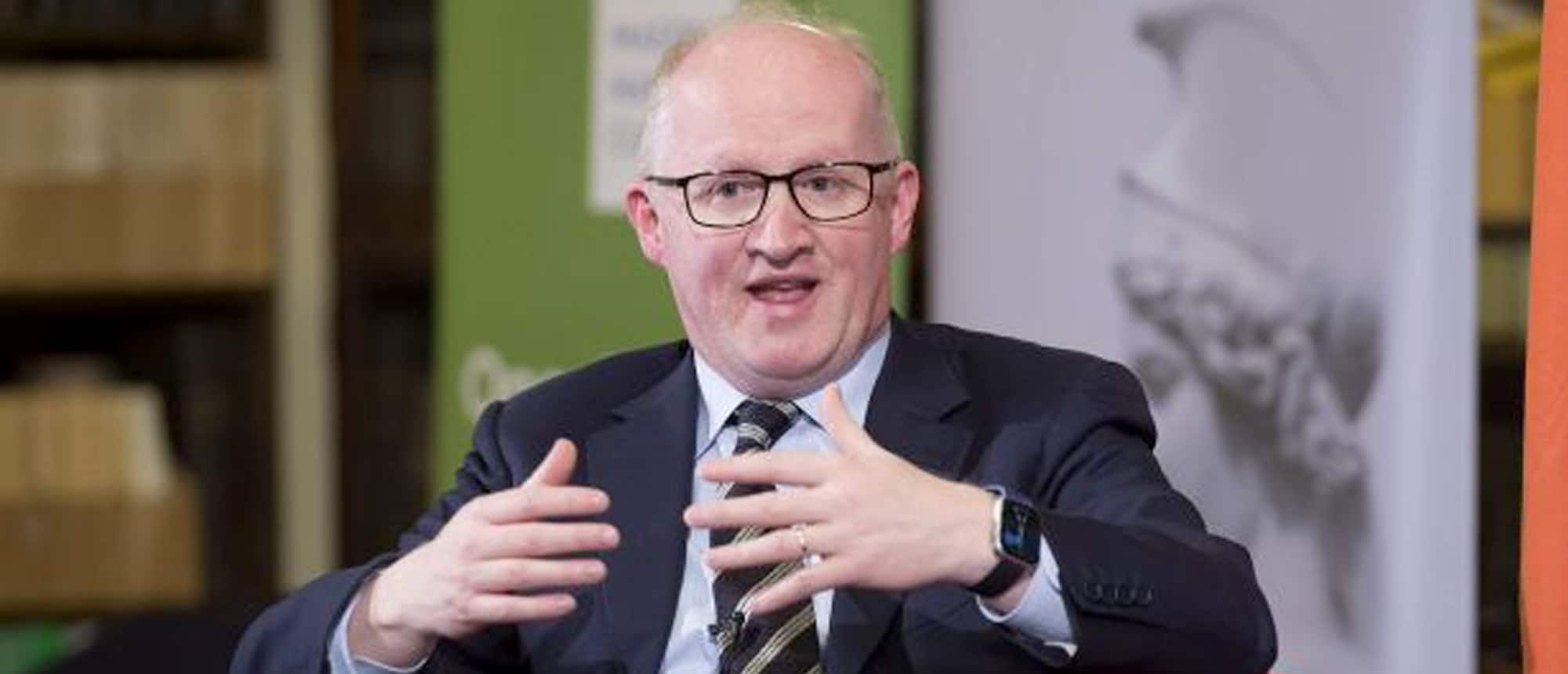Do Whatever It Takes To Cushion The Blow Of COVID-19
During the week I joined a fascinating webinar given by the brains and policy guru behind the European Central Bank, Philip Lane, its chief economist. He looks like a man with the job he always wanted and is comfortable with it.
The reason I used the term “brains” is very simple: Lane is now the intellectual driver of policy. As I listened to him, I heard a combination of Ben Bernanke’s deep appreciation of monetary history and Mario Draghi’s sharp understanding of the power of the central bank and the breathtaking array of tools at his disposal. Lane grasps what is at stake and is prepared to act comprehensively.
The implication for the profile, maturity and cost of debt in euro zone countries is enormous. The only risk is that governments do not fully comprehend the gravity of what the ECB is saying and the opportunity it affords.
It is an institution on the ascendancy that has just slapped down the German constitutional court, has the full backing of the German government, realises that it has to save the European economy and – in practice, if not in theory – is becoming more like the Federal Reserve by the day. In a comprehensive analysis of its role, Lane reiterated the message that the ECB will finance everything any government, or indeed corporate entity, wants to do in the fight against this Covid-19 “pandession”.
The implication is that all debts in Ireland could be restructured at much lower – almost zero – rates. This Irish State borrowed at 0.28 per cent a few weeks back. The only issue preventing Irish mortgages being repriced at these levels is the willingness (or claimed ability) of the banks to follow suit.
I specifically asked Prof Lane this question and he said the purpose of lower interest rates was to get them to work on the street via the banking system. Lower official rates need to be “passed on” for them to work. He implied there was little point otherwise. Let’s come back to this in a bit.
In a series of slides, Lane suggested that euro zone policy could be yet looser. He implied, even at these low rates, that there is more the ECB can do if needed, which is something this column has been highlighting for the past ten weeks.
There is simply no financial constraint on borrowing or refinancing right now. In fact, because inflation is well below the ECB’s target, the next move in short-term interest rates will in all likelihood be downwards again.
In addition, the pandession has led to levels of unemployment that are unprecedented, implying that the ECB will buy more government debt because falling tax revenue might trigger higher bond yields, which the ECB will not tolerate now.
‘Downward loop’
The theme of the talk was very much centred on the ECB stepping into an unprecedented situation and deploying all its tools to prevent what is termed the “downward loop” – when higher bond yields lead to less lending, leading to lower tax revenue and economic growth, leading to yet higher bond yields and the downward spiral takes hold.
The stakes are extremely high and, although not stated, the focus is on Italy and, to a lesser extent, Spain. The ECB will not give the markets any excuse to envelop the euro zone bond markets with “selling contagion”, the type of contagion that almost led to the euro unravelling in 2012-13 under the leadership of the hapless Jean-Claude Trichet.
If member states of the euro zone avail of the opportunities presented by the ECB, this will not happen. Italy provides “cover” for other euro zone countries, particularly smaller ones, to act assertively on the interest rate front.
In a general point, Lane suggested the euro zone economy won’t get back to 2019 levels until 2022 and, during this period of weakness, the ECB stands ready to do more. Therefore, these policies are likely to be with us for some time.
In one of his slides, Lane revealed that the ECB is currently buying just over 20 per cent of all new government bonds issued and that this figure will go higher if necessary. Such a commitment to buy means the market is reassured that anything it buys will be bought from it by the central bank. This provides endless liquidity and therefore profoundly reduces any risks in the euro zone bond market.
In plain English, this means the ECB has said to the governments, “Do whatever it takes to cushion the blow of Covid-19, we are behind you and we will buy whatever isn’t nailed down!”. The ECB has no intention of standing idly by.
This means that right now, because the ECB is behind us, if Ireland wanted to avail of these opportunities, the State could issue a “perpetual” bond to cover all investment spending, ranging from the New Green Deal or it could refinance the entire mortgage book of State-owned AIB, bringing the average mortgage rate in AIB down from around 4 per cent to 0.5 per cent. Where AIB goes the other banks will follow. If they don’t, they will shrink.
Interest rates
Imagine the relief of customers and the increase in take-home income if the same low rate of interest charged to the State were to be charged to the citizens? Given that the risk implicit in Irish government debt is only the aggregation of the Irish citizens’ ability to pay, there is no reason why the State and the citizen shouldn’t face the same rate of interest, particularly if those loans are collateralised by Irish property.
The ECB has said that everything is on the table. Today the average mortgage in Ireland pays 3.5 per cent interest and above. That is more than twice the 1.5-1.75 per cent rate that German and French mortgage holders pay in the same currency. Why?
Equally, the rate of interest faced by the State is almost zero; contrast that “free money” with the cost to the State in terms of lost taxes, unemployment and bankruptcies of letting the tourist/hospitality sectors go bust?
Prof Lane was clear this week. We are in extraordinary times, which demand extraordinary measures. We should not be hamstrung by rules that apply when things are normal because things are not normal. The chance of us getting back to normality will be determined by the courage and vision we show now.
In a crisis, we need new thinking. What was radical before the crisis becomes mainstream, and what was mainstream becomes redundant. When an institution such as the ECB, arguably the most conservative institution in Europe, is prepared to rip up its own rule book, you know the time has come to act differently.

